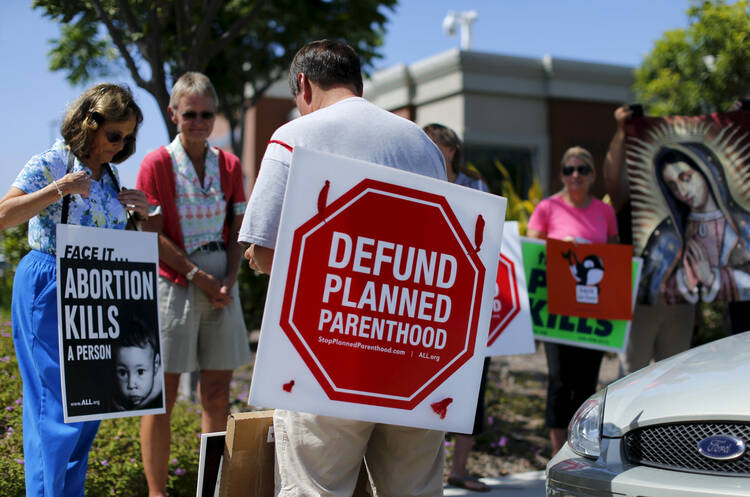I was in high school when I first realized what I believed about abortion. I remember thinking, “If I just tell people what’s going on, they’ll realize how bad abortion is too.” Needless to say, the rest of the world did not see it as black and white as I did. In fact, the topic sparked the first argument I had with a girlfriend. I would get frustrated, rattle off a comparison to the holocaust, and walk away having convinced no one, but feeling righteous.
When I got to college, I had grown somewhat tired of the abortion debate. I still knew what I believed, but I had come to assume that people who didn’t already agree with me weren’t going to budge. But then I found the pro-life group at Loyola Chicago.
From the start, I noticed something was different about them. The group held what they called “Activism Days.” To many pro-life groups, this could mean holding up signs of bloody fetuses on campus. To them, it meant starting conversation—asking strangers on campus what they thought about abortion.
Our campus pro-life group was mentored by a larger organization called Students for Life of Illinois. This organization taught us to start our conversations with those who were pro-choice by focusing on those areas where we agreed, rather than try to bludgeon them with our own position. Often, those conversations ended in an invitation:
“That’s really cool that you think poor women and children need more support after the child is born. We actually do a lot of work with groups who do just that; would you want to come volunteer with us sometime?”
“You’re adopted? So is my friend Annie, let me introduce you. It’s a huge reason she’s involved in the group.”
“Yeah, I struggle with understanding that too. You should come to our meeting this week, we’re having someone talk about the biological perspective.”
Eventually, I went on to lead the group as president. That meant I spent less time debating the morality of abortion, and more time asking difficult questions about how the pro-life movement spreads its message, and our own role in that mission: Should the pro-life movement entrust its cause solely to the G.O.P.? What if every bill that was proposed to restrict abortion, or defund Planned Parenthood, also included government support for new parents? Who is a part of this movement? Are atheists and non-Christians welcome in the pro-life movement? Do we, as Catholics, value their voices enough to listen to, not just tolerate, them? What if protesting outside abortion clinics, or holding up pictures of bloody fetuses, was actually solidifying abortion opponents’ commitment to protect the right to choose?
This brings me to the undercover videos that have been and will continue to be released by the Center for Medical Progress. What these videos depict is evil—but it is neither surprising nor exceptional. As W. H. Auden wrote, “Evil is unspectacular and always human,/ And shares our bed and eats at our own table.”
The videos likely have challenged individuals who have not yet made up their mind about abortion. People on all sides of the issue were disturbed by what was depicted. And this feeling came from more than just discomfort with the government funding for Planned Parenthood or the surreptitious nature of the videos.
Because we tend to avoid looking at the reality of abortion, it is sometimes necessary for us to be shocked into recognizing it. Both the pro-life and pro-choice camps feel outrage at these videos—often for very different reasons—but we must be careful not to become enamored with this outrage. Outrage is not the end game.
While Students for Life of Illinois taught me how to dialogue with people who disagreed with me by focusing on common ground, they also taught me that no one thing will fix abortion.
The real opportunity here is not to defund Planned Parenthood. The real opportunity is to have a better and more honest conversation about abortion that might lead to hearts and minds changing. And we shouldn’t squander the second by focusing quixotically on the first.
Zac Davis is an editorial assistant at America.








